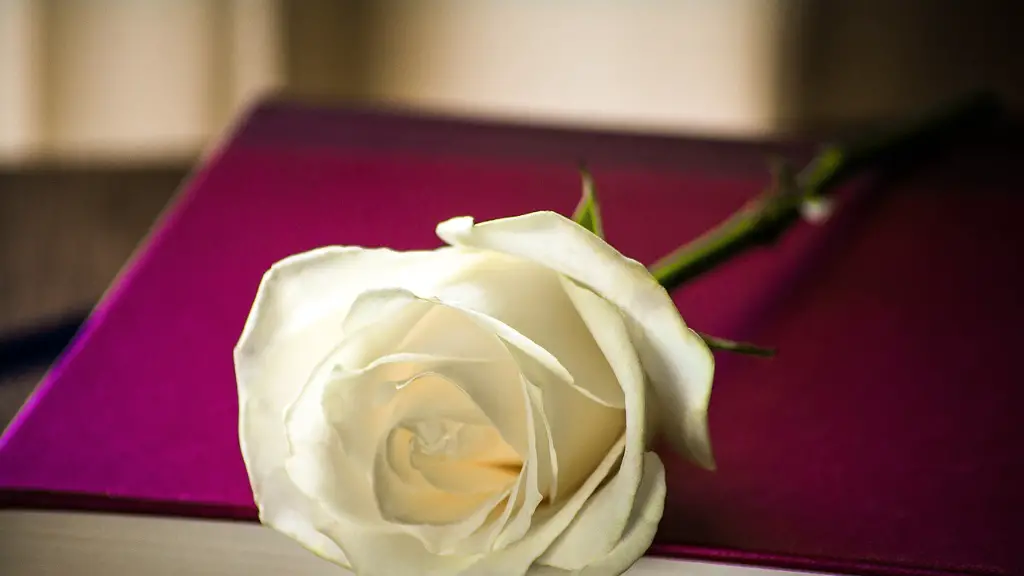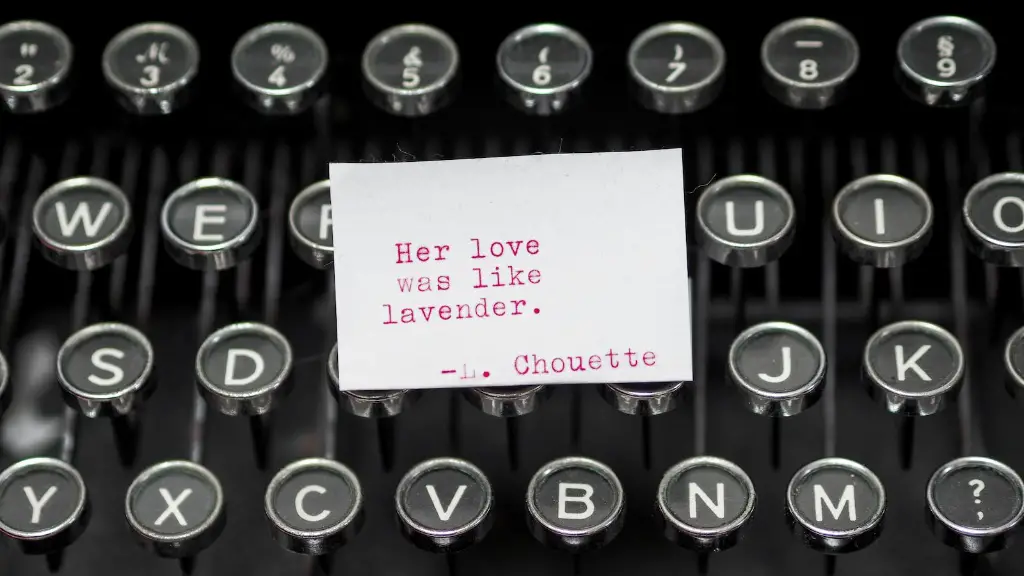General Overview
Poetry is an expressive and imaginative form of writing that can be both spiritually and emotionally enriching. It is a form of creative writing that uses words, imagery, and language to build a narrative and convey various messages to the reader. It can also be referred to as “free writing” since it is essentially unrestricted, allowing writers to explore their personal beliefs and interests in their compositions. Poetry has been around since ancient times and has been used to capture emotion and convey ideas to a wider audience in a condensed manner. It has been used to pay homage to political and social leaders, beloved persons as well as to express one’s thoughts and feelings. There has long been debate over whether poetry is a creative form of writing or simply a structured artistic form that has specific rules and regulations.
Advantages of Being a Creative Writer
As a creative form of writing, poetry has numerous advantages for both the writer and the reader. For the writer, poetry gives them an outlet to express themselves in a unique way. It allows them to think imaginatively and to use words and language purposefully to craft their thoughts. Writing poetry also allows one to accurately capture and convey complex emotions and concepts in a more concise manner. Additionally, as poetry is often seen as more of a personal endeavor, it can also be very therapeutic for many writers.
For readers, poetry can often be seen as more intuitive to understand than other forms of written text, as it relies more on imagery and metaphors to portray its message. Additionally, due to its condensed nature, poetry pieces are usually shorter in length than other forms of writing, making them ideal for those with a limited attention span.
Limitations of Being a Creative Writer
In spite of the numerous benefits of being a creative writer, poetry has its limitations as a form of writing. The basic structure of poetry means that it is often restricted by certain rules and constraints when it comes to content and also in terms of how it looks on the page. Additionally, due to its succinct nature, creative writers may often find it difficult to convey complex concepts and ideas in such a restricted space.
In terms of structure, poets often have to adhere to a specific format such as iambic pentameter or other rhyming schemes. Poets are also often challenged when it comes to finding the right words and images to portray their intended messages, as they have to express themselves in fewer words than with other forms of writing.
Expert Opinions
Many experts agree that poetry is an essential form of creative writing as it has the potential to move, enlighten and encourage readers. According to Linda Taylor, a renowned English professor at the University of Phoenix, in an interview with PEN America, “Poetry is a type of creative writing that is able to convey messages and emotions in ways that a written essay or short story might not be able to…it condenses language and provides readers with an emotional experience that can provoke a lot of thought and reflection.”
Additionally, Dr. Richard Nordquist, author of Creative Writing: A Guide and Anthology believes that “Creative writing is essential because it allows writers to explore the depths of the language and express their ideas in a more concise and effective way. By using imagery, metaphors, and other forms of figurative language, poets are able to convey their messages in a more eloquent and powerful manner.”
Modern Applications
Despite being an ancient form of writing, poetry has seen increased popularity in recent times. Its modern applications often use the form as a vehicle for expressing love and appreciation for individuals in special occasions or for capturing personal emotions and thoughts. Additionally, it is also often used as a means of activism in today’s society, as poems can powerfully call attention to specific causes.
In terms of education, poetry is often used in classrooms to teach children how to think imaginatively as well as how to craft meaningful stories. By encouraging students to write poetry, teachers are able to foster curiosity, critical thinking, and creativity in young minds.
My Opinion
In my opinion, poetry is a powerful and imaginative form of creative writing. It has the power to be both insightful and spiritually uplifting. Writing poetry allows you to explore your own beliefs, passions and curiosities, while also allowing you to express your emotions and thoughts concisely. Additionally, its ability to be used as a means of activism makes it particularly relevant in our society today, as it can powerfully call attention to important issues.
Popularity of Poetry
In terms of its popularity, poetry has seen a surge of interest in recent years. According to a 2017 survey conducted by the Pew Research Center, poetry was the second most popular form of art amongst American adults, with 37% of respondents saying that they had read a poem in the last 12 months. This is indicative of the increasing impact that poetry has had in recent times, not just as a form of creative writing, but also as a form of expression and activism.
Conclusion
In conclusion, poetry is an expressive and imaginative form of creative writing that can be both spiritually and emotionally enriching. It has been used for centuries to capture emotion, convey ideas and to pay homage to people and causes. Additionally, the increasing popularity of poetry in modern times has made it more relevant than ever before. It is not only used to express oneself in a more concise manner, but also to serve as a platform to speak on important issues in society.


